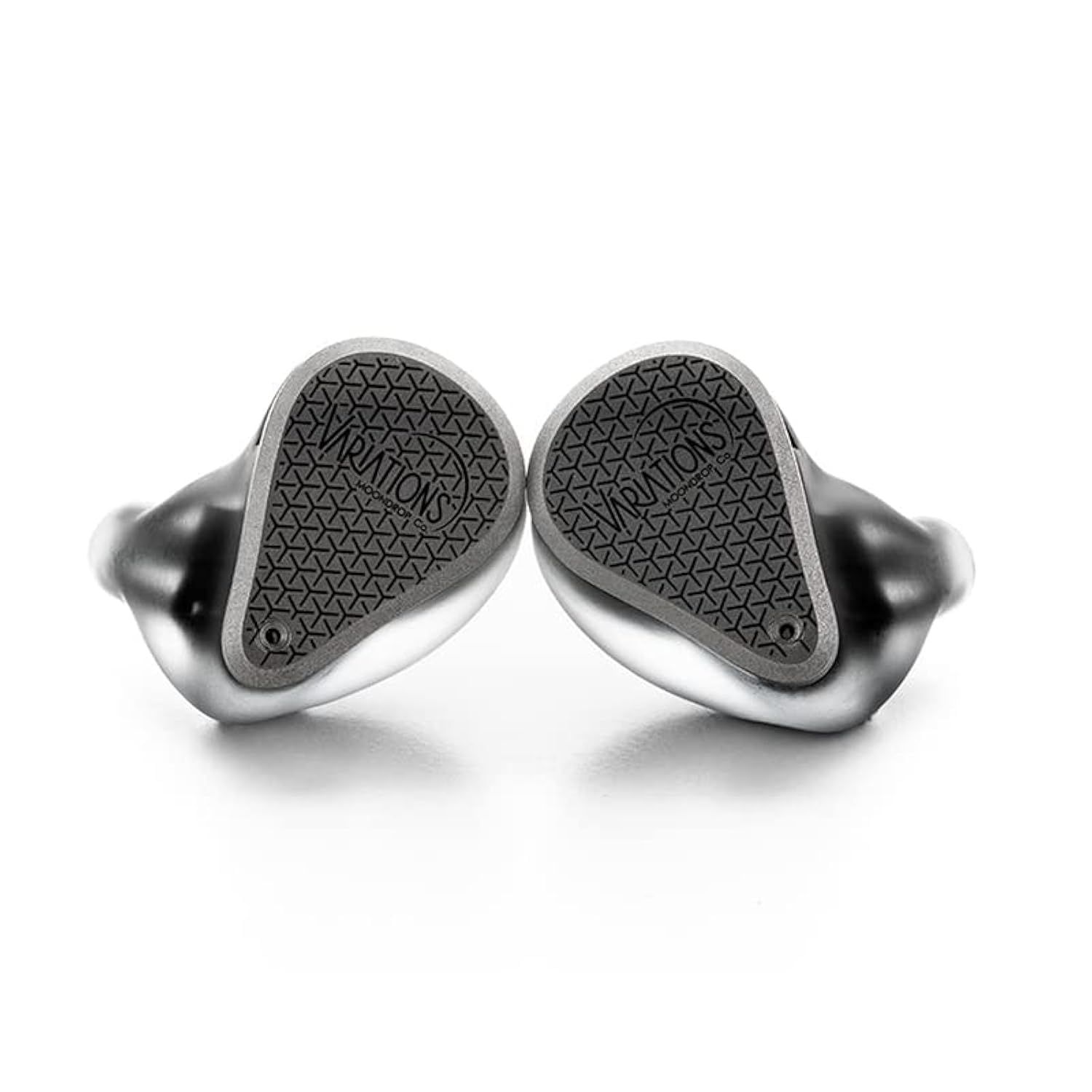Tea Provs.Variations
Sound & Specs Comparison
Information
Both IEMs are widely regarded in the audiophile community. See how they differ in terms of sub-bass response, upper mids, clarity, and overall tonality. Spider charts and rating breakdowns included.
Objective Comparison
Facts, details, stuff.
| General Info | Tea Pro | Variations |
|---|---|---|
| Brand | XENNS Mangird | Moondrop |
| Country | – | China |
| IEM Description | – | Moondrop Variations is a hybrid in-ear monitor combining electrostatic, balanced armature, and dynamic drivers for a precise and immersive listening experience. Known for its balanced, reference-style tuning with tight bass, clean mids, and extended treble, it’s a favorite among audiophiles who crave clarity and technical performance. Ideal for detail lovers and those seeking a high-fidelity sound signature. |
| Price Level | 100 – 500 | 500 – 1.000 |
| Housing & Driver | ||
|---|---|---|
| Driver Config | – | Tribrid |
| Driver Types | – | Dynamic Driver + Balanced Armature + Electrostatic |
| Shell Material | – | Copper |
| Cable | – | – |
| Technical | ||
|---|---|---|
| Freq Range | – | 9-40,000 Hz |
| Impedance (Ω) | – | – |
| Sensitivity (dB) | – | – |
| Crossover | – | – |
| Platform Info | ||
|---|---|---|
| Comments | 0 | 1 |
| Visit Count | 65 | 69 |
| External Reviews | 0 | 3 |
Meta Ratings
Compared to Variations, Tea Pro creates a slightly wider and deeper soundstage, giving each instrument more space and depth. For comfort fit, Variations performs barely better (7 vs 6.5). Tea Pro’s cable appears clearly more premium in both aesthetics and function, from its braid quality to termination.
| Tea Pro | Variations | |
|---|---|---|
| Sound | 7.0 | 6.5 |
| Comfort Fit | 6.5 | 7.0 |
| Build Quality | 6.5 | 6.5 |
| Stock Cable | 6.5 | 5.5 |
| Accessories | 6.0 | 6.0 |
Sound Characteristics
Low-frequency extension on Variations feels a more natural and authoritative, while Tea Pro lacks some reach (6.5 vs 6). The low-end on Tea Pro is s more controlled and rhythmic, offering better definition than Variations (7 vs 6.5). The bass in Variations feels d more physical and textured, with improved rumble and body compared to Tea Pro (8.5 vs 7). The lower midrange on It blends a more smoothly into the bass region, avoiding the disconnect found in Tea Pro (7.5 vs 6.5). In the upper mids, It sounds s clearer and more articulate, highlighting vocals and lead instruments better than Tea Pro (8 vs 6). Instruments like violins and brass are portrayed with a more brilliance on It, while Tea Pro sounds slightly dull (7.5 vs 7). It creates a a wider soundstage, giving instruments more space and a better sense of placement than Tea Pro (7.5 vs 7). It extracts low-level details a more effectively, helping subtle nuances emerge clearer than on Tea Pro (8 vs 7). It keeps competing frequencies under control a more effectively, reducing sonic congestion compared to Tea Pro (7 vs 6.5). It adds e more body and density to musical notes, enriching the overall texture compared to Tea Pro (8 vs 7). It delivers d stronger slam and physicality, making drums and transients hit harder than Tea Pro (8.5 vs 7). It controls harsh sibilant peaks m more effectively, making vocals smoother than on Tea Pro (9 vs 6). The tone quality of It feels a more organic and true-to-source than the slightly artificial flavor of Tea Pro (7.5 vs 7). It achieves a better tonal neutrality, avoiding colorations present in Tea Pro (7 vs 6.5). It portrays textures in vocals and strings with m more realism, enhancing emotional depth over Tea Pro (7.5 vs 6).
| Tea Pro | Variations | |
|---|---|---|
| Sub Bass | 6.0 | 6.5 |
| Bass | 7.0 | 6.5 |
| Bass Feel | 7.0 | 8.5 |
| Lower Mids | 6.5 | 7.5 |
| Upper Mids | 6.0 | 8.0 |
| Lower Treble | 7.0 | 7.5 |
| Upper Treble | 8.0 | 8.0 |
| Sound Stage Width | 7.0 | 7.5 |
| Detail | 7.0 | 8.0 |
| Layering | 7.0 | 7.0 |
| Masking | 6.5 | 7.0 |
| Note Weight | 7.0 | 8.0 |
| Slam | 7.0 | 8.5 |
| Sibilance | 6.0 | 9.0 |
| Timbre Color | 7.0 | 7.5 |
| Tonality | 6.5 | 7.0 |
| Texture | 6.0 | 7.5 |
Tonal Signature
// Nothing to compare yet.

